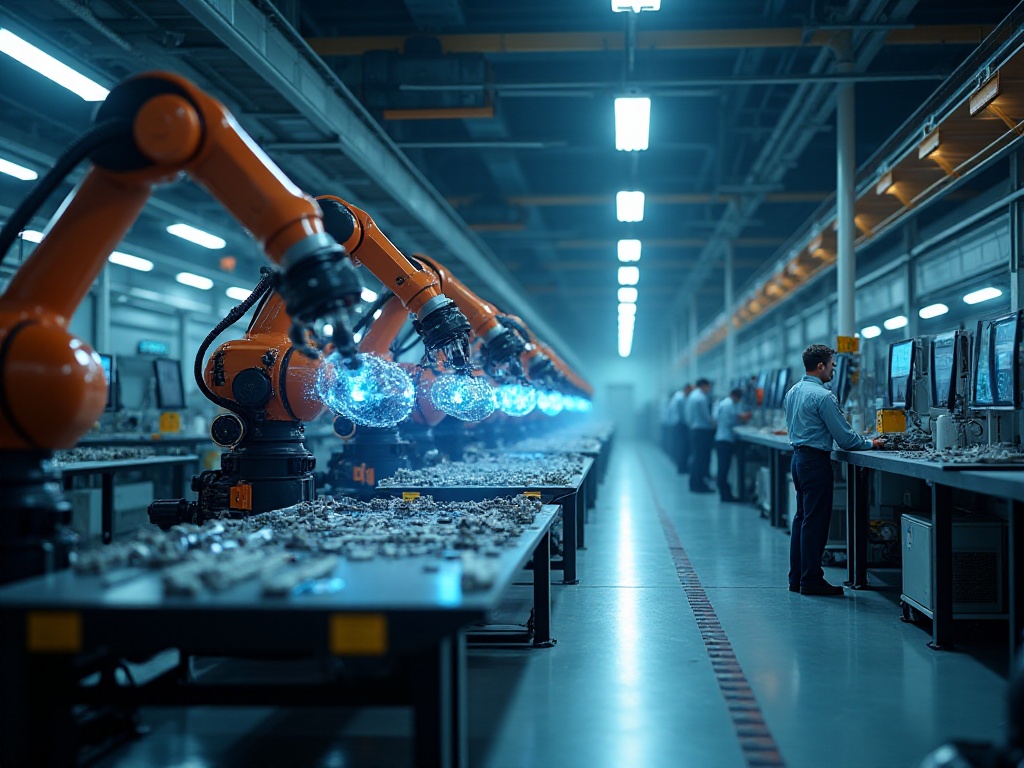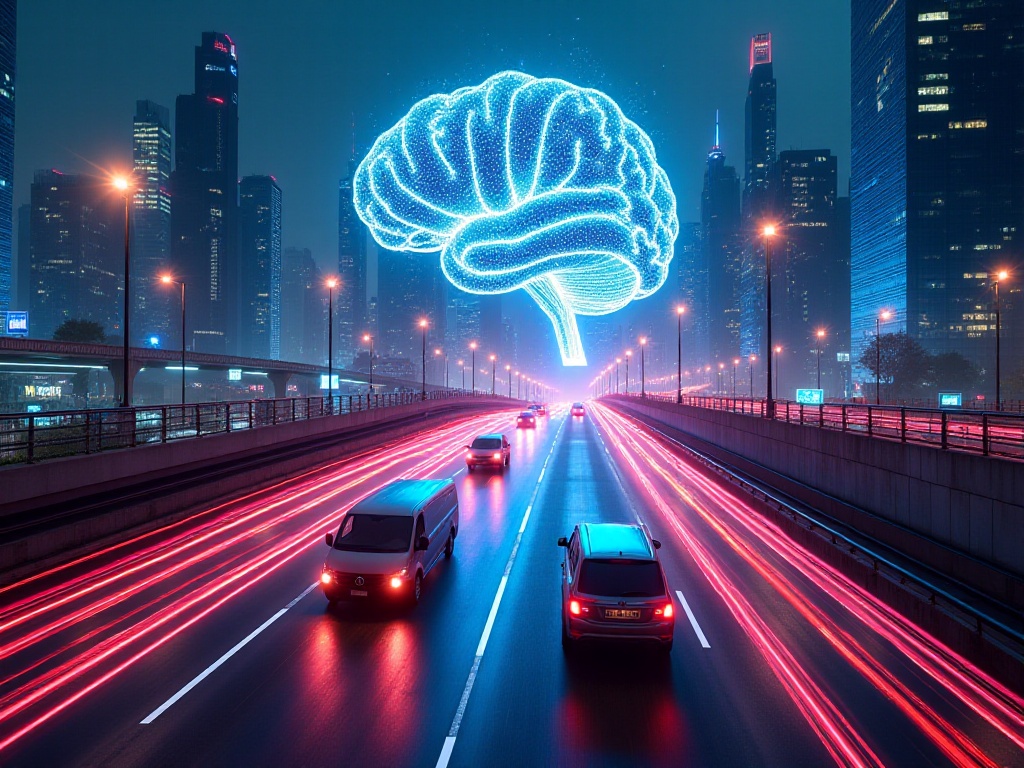Opening Chat
Hello everyone! Recently, I've noticed more and more of my colleagues starting to use AI tools at work. Some use it to write weekly reports, some for making PPTs, and some even use it for coding. As someone who interacts with AI daily, I can't help but share my experiences. To be honest, when I first encountered AI, I was like everyone else - finding it fascinating but a bit puzzling. After using it for several months now, I've really seen my work efficiency improve, and I'm becoming more addicted to using it!
True Stories
Here's an interesting story. During our department meeting last week, I noticed our product manager Wang presented a beautiful product analysis report. After the meeting, I couldn't help but ask him how he did it. He smiled sheepishly and said, "Actually, I used AI to help organize the data and draft the initial report, then I made some modifications."
Guess what? Other colleagues present also revealed that they were using AI to assist with their work. This made me realize that AI has quietly changed our way of working. So the question is: how do we best use this "ultimate assistant"?
It's particularly interesting that Old Zhang from our tech department was initially very resistant to AI, thinking it was just a toy. But once when he encountered a particularly tricky coding problem that he couldn't solve for days, I suggested he try AI. Surprisingly, AI solved it in no time. Since then, Old Zhang has become our department's most enthusiastic AI user, frequently sharing various AI usage tips in our department group.
Then there's Little Li from our design department, who used to struggle with making PPTs, often staying up late. Since using AI to assist with design, not only has her efficiency improved, but her creativity has also become richer. She says AI provides her with many unexpected design inspirations, making her work more innovative.

Practical Tips
First, I want to talk about the most practical scenarios for AI in daily work. For example, in document processing, I often need to read large amounts of English materials and technical documentation. Previously, it would take several hours to read, but now I first let AI summarize the key points, then read more targeted sections in depth. This not only improves efficiency but also allows me to focus more energy on thinking and innovation.
When processing documents, I discovered a particularly useful technique: first having AI do a structural analysis of the document, listing out the main points and evidence, then having it explain each key point in detail. This not only helps quickly grasp the core content but also helps understand the author's logical arguments. Sometimes when encountering particularly technical terms, I also have AI explain them in simple language, making them much easier to understand.
Another particularly useful scenario is meeting summaries. You know how painful it is to write meeting minutes after a meeting? Now I record the entire meeting, have AI transcribe it into text, then help me extract the key points and organize them into structured meeting minutes. This method has really saved me so much time.
Speaking of meetings, I recently discovered that AI is also particularly helpful in meeting preparation. For example, when preparing for a product review meeting, I first have AI help me organize the product's advantages and existing issues, then prepare the presentation based on this content. AI not only helps me organize language but can also provide some perspectives and suggestions I might not have thought of.
In terms of daily writing, AI is absolutely my lifesaver. Whether writing weekly work reports, project reports, or market analyses, I always have AI help me outline first, then expand on each section. AI's suggestions often make my articles more organized and professionally expressed. However, I never use AI-generated content directly, but rather use it as a starting point and then add my own views and experiences.

Important Considerations
At this point, I must remind everyone of several precautions when using AI. First is the data security issue. When conversing with AI, it's essential to protect company confidential information. For example, I replace sensitive information with generic descriptions before having AI process it.
I once made a mistake and almost sent some of the company's core data to AI. Later, I developed a set of methods: before using AI, first ask yourself whether this information involves company secrets. If it's sensitive information, use example data or generic descriptions instead. For instance, when discussing specific sales data, I use relative data like "year-on-year growth of xx%" instead of specific numbers.
Second is output verification. AI-generated content isn't 100% accurate. I remember once I had AI help me write some code, but when running it, I found bugs. So now I've developed a habit of carefully checking any AI-generated content.
Speaking of verification, I think the most important thing is to establish a complete verification process. For code, I first run it in a test environment and only deploy to production when there are no issues. For document content, I review it from three dimensions: logic, accuracy, and completeness. Sometimes AI produces content that seems correct but isn't, and if not carefully verified, it's easy to be misled.
Another often overlooked issue is over-reliance. I've seen colleagues who almost delegate all their work to AI, resulting in gradually losing their independent thinking ability. So I'm particularly careful to maintain a balance: use AI to improve efficiency, but core thinking and decision-making still need to be done by oneself.

Deep Thoughts
After using AI tools for a while, I increasingly feel that it's not here to replace us, but to enhance our capabilities. Just like using a calculator, it helps us solve basic calculation problems, allowing us to focus on more creative work.
Reflecting on my months of using AI, the biggest feeling is how it has changed my way of working. Previously, I might have spent a lot of time on repetitive work, but now with AI's help, I can put more energy into innovation and strategic thinking. For example, in product design, AI helps me process large amounts of user feedback data, allowing me to discover user pain points faster and propose better solutions.
Have you noticed that those colleagues who are best at using AI often don't completely rely on it, but rather treat it as an intelligent assistant to help complete their work? This reminds me of a point I read before: the most successful people in the future won't be those replaced by AI, but those who best know how to use AI.
In conversations with colleagues, I've found that everyone has their unique way of using AI. Some are good at using AI to spark creativity, some excel at using AI to optimize processes, and others use AI to assist in decision-making. These different usage patterns actually reflect each person's work characteristics and thinking style.
What impresses me most is that AI hasn't just improved our work efficiency, it's also changed how we learn. Previously, when encountering something we didn't understand, it might take a long time to research. Now with AI, we can acquire knowledge faster and understand problems more deeply. This change is revolutionary, making lifelong learning easier and more efficient.

Future Outlook
To be honest, seeing AI develop so quickly, do you also worry a bit about your job being replaced? But I think rather than worrying, it's better to actively embrace this technology. Every time I complete a new task with AI, I think: how else can this technology help me improve work efficiency?
Recently, I've been researching how to use AI to assist team collaboration. For example, using it to manage project progress, organize meeting records, and even help new employees quickly get up to speed. What do you think about these application scenarios? Welcome to share your thoughts and experiences in the comments.
I'm particularly looking forward to AI applications in team collaboration. Imagine how much our collaboration efficiency would improve if every team member could skillfully use AI tools? For example, in project management, AI can help us predict potential risks, provide solution suggestions, and even automatically generate project progress reports. In knowledge management, AI can help us build an intelligent knowledge base, helping new employees integrate into the team faster.
Speaking of the future, I feel we're in a particularly interesting era. AI technology is advancing rapidly, with new breakthroughs appearing regularly. As professionals, what we need to do is maintain an open and learning mindset, actively exploring the possibilities these new technologies can bring us.
Actually, anyone can become an expert in AI tools, the key is to try more, summarize more, and find the most suitable way of using it for yourself. Are you using AI in your work now? How do you use it?
From my experience, the best way to master AI tools is to start with small things. You can begin with simple tasks, like using AI to write emails or organize documents. As you gain experience, gradually try more complex applications. The important thing is to continuously summarize and reflect during use, finding the most suitable method for yourself.
Don't forget, this new technology wave is just beginning, and we have many possibilities to explore. Perhaps someday when we look back at now, we'll find this was the beginning of an exciting era of transformation.
I believe that as long as we can correctly understand and use AI, it will become a powerful assistant on our career development path. The future work scenario may change greatly, but one thing is certain: mastering AI tools will become an essential skill for every professional.
Let's continue exploring and growing together in this AI era! Looking forward to seeing your experiences and thoughts in the comments. We can exchange ideas, learn from each other, and progress together in this era full of opportunities.








